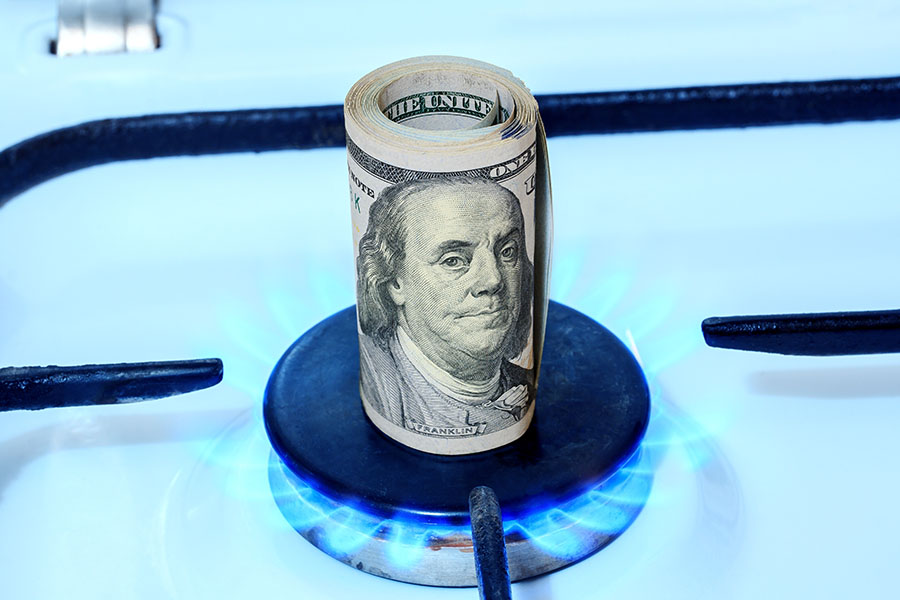Oregon’s biggest utility companies are planning rates increases.
Gas and electric customers in Oregon can expect to pay more with Oregon’s utility companies planning rate increases.
As of Friday, four private utilities have rate-change plans on file with the Oregon Public Utility Commission, including Pacific Power, which has proposed an 18% increase, and Portland General Electric, which proposes increasing user rates by an average of 7.3%. If approved, the increases would go into effect next year.
Three of the four utility companies — PGE, Pacific Power, Northwest Natural Gas Company (NW Naturals) — last raised rates in 2023. PGE’s 2023 increase of 18% was its largest ever.
Reporting by Oregon Public Broadcasting found that recent utility rate hikes are driven by three main factors: the rising price of natural gas, a shift to renewable technology and a drive for bigger corporate profits. Some customers are paying more than 50% more than in 2019 with monthly bills $20 to $30 higher. This compounds struggles for families already dealing with inflation and stagnant wages.
The group Oregon Citizens Utility Board has filed formal opposition to each increase in the PUC’s quasi-judicial hearings process. CUB has proposed a limit on rate increases similar to the cap on rent increases passed by the Oregon Legislature in 2019. Other strategies for relief include pushing utilities to redefine who qualifies as low-income to qualify for household rate discounts.
When a private utility in Oregon wants to increase rates, it must file a request with the PUC. At the moment, four of the six electric and natural gas utilities regulated by the PUC have rate cases pending with the agency.
The cases:
- PGE, which serves customers in 51 cities in seven metro-area counties, has asked to increase rates by an average of 7.3%. The plan is in line with a goal of raising $202 million in revenue the utility says would improve dependability and fund investments in battery energy storage projects and upgrades to transmission and distribution systems.
- Pacific Power (PacifiCorp), which serves 627,000 customers in Oregon, wants to increase rates by nearly 18% to raise $322 million. The request is driven by rising insurance costs and a demand to pay $21 million as part of the PUC’s Wildfire Mitigation Plan.
- NW Naturals, which serves 708,000 customers in Oregon, proposes to increase rates by around 17%. It hopes to raise $154 million to recover seismic upgrade costs, address capacity constraints and comply with federal pipeline and safety requirements. Other factors include modernizing information and technology service systems and complying with energy grid modernization requirements.
- Idaho Power Company, which serves approximately 19,900 customers in Oregon, wants to increase user rates by 19% to raise around $10.7 million. The request includes $7 million to fund a transmission plant, general power plant, batteries and distribution systems. The proposal would also fund maintenance and expanded operations. (Oregon customers represent around 5% of the Idaho-based utility’s customer base.)
Reviews of the proposals by Idaho Power and NW Naturals are expected to be completed by October with those of PGE and Pacific Power due in December.
A primer on rate-setting
The Oregon Public Utility Commission regulates three investor-owned electric utilities (PGE, Pacific Power and Idaho Power) and three natural gas utilities (Avista, Cascade Natural Gas, NW Naturals), as well as landline phone providers and a handful of private water companies.
All rates charged by utilities must be approved by the PUC. After a utility company submits a proposal to change its rates, the PUC opens a yearlong investigation to examine the reasonableness of the request. In determining if a rate change is warranted, the PUC evaluates factors like changes in the energy market, maintenance costs, asset depreciation, capital expenditures and expected revenue. Public feedback is heard and occasionally, hearings are held. In contested cases, groups like Oregon Citizens Utility Board represent residential customers and the PUC’s three commissioners determine outcomes. If parties don’t come to an agreement, the commission can either approve a rate case as filed, approve a lower increase than requested or deny the request.
To submit a comment by phone, email or physical mail, click here to learn more.
Click here to subscribe to Oregon Business.




